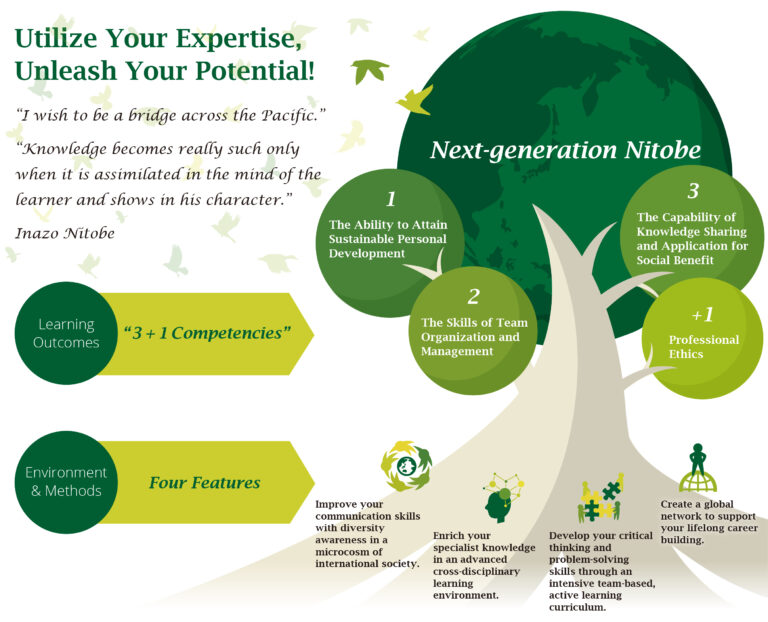What is Nitobe College Honors Program: Graduate Curriculum?
The Nitobe College Honors Program is an interdisciplinary educational program focusing on cultivating the mindset and skills necessary to thrive in the global society that complements specialized education and research in each department and graduate school. In the Graduate Curriculum, students from diverse academic and cultural backgrounds come together to learn and practice creative and critical thinking, leadership, problem-solving and -finding, etc. Through this process, students acquire the “3+1 competencies”(Ability to Attain Sustainable Personal Development, Skills of Team Organization and Management, Capability of Knowledge Sharing and Application for Social Benefit, and Professional Ethics).

“3+1 Competencies”
- The ability to attain sustainable personal development: Ability to acquire new knowledge required to respond to social change, create and implement a plan using the ability to grow in maturity, and apply creative and critical thinking in a complementary way.
- The Skills of Team Organization and Management: Ability to organize teams of people with diverse expertise and contribute to leadership with strong communication skills to collaborate toward a common goal and achieve results.
- The capability of knowledge sharing and its application for social benefit: Ability to recognize the social function of knowledge, accurately solve problems in various situations by applying responsibility and ethics, and settle problems for the better.
- Professional Ethics: Ability to make responsible, fair, and impartial decisions as a highly educated professional, considering the interests and consequences on society as a whole, while being sensitive to ethical issues in a society with diversifying values.
Four Features
- Microcosm of international society: Improve your communication skills with diversity awareness in a microcosm of international society.
- Cross-disciplinary learning environment: Enrich your specialist knowledge in an advanced cross-disciplinary learning environment.
- Intensive team-based, active learning curriculum: Develop your critical thinking and problem-solving skills through an intensive team-based, active learning curriculum.
- Global network: Create a global network to support your lifelong career building.
